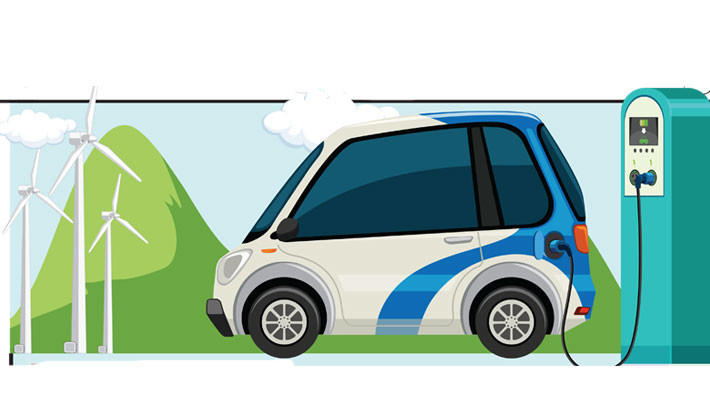Revolution on wheels
Bangladesh joins the global auto shift
When manufacturers and automotive companies like ACI Motors, Akij Motors, Walton Motors, Jamuna Automobiles, and many other assemblers are already booming with their own initiatives, government policies can elevate Bangladesh's auto industry to the next level
Catherine Bristy, Dhaka
Published: 18 Aug 2025

The automobile industry is changing all over the world. Electric cars, smart SUVs, and even self-driving vehicles are becoming more common. The way cars are made and used is very different from before. Bangladesh, which was once only known for importing cars, is now starting to take part in this global change.
For years, the country’s auto sector was limited to assembling imported parts, with most buyers relying on reconditioned Japanese cars. That landscape is slowly changing. Today, local factories like Rancon Auto are producing complete vehicles under global brands such as Mitsubishi, Proton, and GAC, even rolling out luxury sedans and SUVs for the domestic market. This is more than just an industrial change; it marks the beginning of a new era for Bangladesh’s automobile sector.
Government policy has played a crucial role in accelerating this transformation. Earlier this year, the National Board of Revenue cut duties and taxes on locally manufactured electric and hybrid cars to about 33 percent, making them more affordable for consumers. When manufacturers and automotive companies like ACI Motors, Akij Motors, Walton Motors, Jamuna Automobiles, and many other assemblers are already booming with their own initiatives, government policies can elevate Bangladesh's auto industry to the next level.
The shift is already visible on city streets, where electric vehicles (EVs) introduced in early 2023 are gaining ground. Companies like Palki Motors, which built the first electric cars in Bangladesh, are producing electric cars for commercial drivers and urban commuters. Many EV charging networks, like Ekhon Charge and Mulytic Energy Network, have set up charging stations in Dhaka and other major cities, laying the groundwork for broader adoption. Industry insiders say the trend is irreversible, especially as battery technology improves and charging becomes faster and more convenient.
The global popularity of sport utility vehicles (SUVs) is mirrored in Bangladesh. Every year, luxury SUVs are in demand in the country. For Bangladeshi buyers, SUVs represent a blend of comfort, safety, and status, and automakers are responding by offering hybrid and electric versions to match consumer expectations.
Demand for SUVs and crossovers have surged over the past decade. BRTA data shows 8,657 SUVs were registered in 2024, up 11.5% from 2023.
Chinese carmakers are also making their presence felt. Brands like BYD and GAC are competing aggressively in Bangladesh, offering affordable electric and hybrid options that directly challenge the long-dominant Japanese players.
Globally, automakers are racing toward fully autonomous vehicles, with the United States projecting billions in annual revenue from the sector by 2030. For now, Bangladesh is watching from the sidelines, but industry watchers believe such technologies will gradually filter into the market as global supply chains expand. Challenges remain. Charging infrastructure is still limited, prices remain a concern for many buyers, and the industry needs consistent government policy to sustain growth.
Moreover, to build cars locally, the automotive industry in Bangladesh faces a major challenge: limited access to components and parts. Local factories need to be established to manufacture automobile parts, with quality standards assured. Otherwise, local car production, which is currently evolving, may struggle in the future or remain expensive due to dependence on imported components from the global market. Behind all of this, research and development is another step needed to mitigate these challenges. Yet the opportunities are immense. With a young population, rapid urbanisation, and growing consumer demand for safer and smarter cars, Bangladesh has the potential to become a regional hub for automobile manufacturing and innovation.
The global auto industry is racing ahead with electrification, connectivity, and new business models. Bangladesh may not be leading the charge, but it is no longer a passive spectator.
The country is already on the road to transformation, and if the current momentum continues, the next generation of cars built in Bangladesh will not only serve its own people but could also find their way to regional markets. The wheels of change are firmly in motion.
__________________________________________
The writer is a contributor to the Daily Sun

